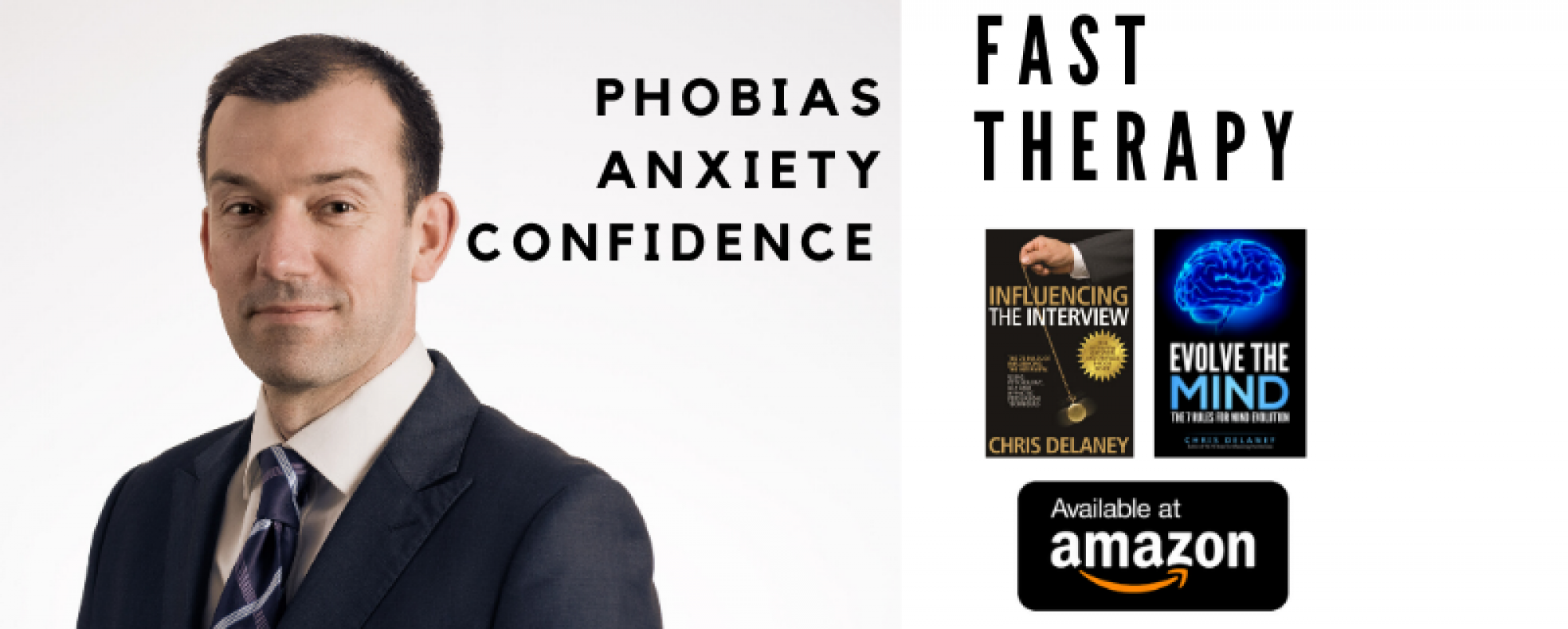Fast Brain, Fast Therapy
We react chemically to a stimulus. If you see a spider, an angry looking stranger walking towards you or someone invites you to a social gathering , your mind searches for a frame of references and then accordingly, creates an emotional response; surprise, joy, sadness, angry, frightened to name a few. This is an immediate and fast internal system.
This process allows you to react quicker , with most people responding automatically to the stimulus. As an example, If you feel that you will be physically attacked, you often react with either a fight or flight response, responding before you are consciously aware of your response.
In this way, the brain responds quickly to help keep you safe by releasing certain chemicals into your body, you act accordingly to this chemical feeling, creating habits and automatic responses. Your mind reacts this way through thoughts as well as real life stimuluses; A phobic will feel the same fear when thinking about a stimulus as they do when they see the stimulus.
Changing Memories
A smell, tone, word or any other stimulus can bring a past memory to the forefront. Reliving this memory in your minds eye creates the associated emotional response. The smell of baking bread may take you back to a happy childhood experience or the word “presentation” may create a strong feeling of fear as you recall an embarrassing public speaking experience.
This associated feeling to a stimulus becomes a process (stimulus = emotional reaction + your reaction)
Our minds create these processes so we can react quickly, we don’t have to consciously re-make simple decisions because they become automatic procedures. The neurons in our mind fire each time we access a stimulus, helping to make the process of doing a task simple and quicker.
The spider phobic see’s a spider and doesn’t ask “how shall I feel about this?” rather they react automatically; the brain releases a positive or negative chemical and you react accordingly, by feeling happy, scared, excited or fearful. This emotional feeling , on a basic level fires your fight or flight response.
The mind finds a frame of reference to a stimulus, this frame of reference creates an emotional response which affects your behaviour. If you change the frame of reference, the emotional memory you can alter the chemical release changing your behaviour.
If your desired behaviour is calmness for the stimulus “spider” all you have to do is change the fearful frame of reference to one of calmness.
Emotional Frames of Reference
Our brain uses our 5 senses to take in the world around us, the brain will then to search for an appropriate response or way to act. Your brain finds memories and memories have an emotional attachment, this emotional attachment helps us to decide how to respond to the current situation. When I attended a party last I felt nervous, so I will feel nervous now, as this situation is very similar.
We all perceive situations differently due to our emotional frame of reference and your past experiences. For one person the thought of going on a plane can create instantaneous pleasure as their frame of reference for a plane is happiness and joy (positive holiday experience) but for other it creates fear (bad plane experience)
As we go through the world we collect new information and evidence to back up or change our memories, creating strong beliefs, changing our perspective and behaviour. Through plasticity our brain changes constantly, which means we can easily change the frame of references helping you to have your desired response.
Changing the Results
To change our automatic behavior is easier than most people think. We respond to what we think about; if you think about a happy experience you will feel happy, if you remember the last time you were excited you will feel excitement, if you think about a time you laughed out loud, you will start to laugh.
When you require a new resource for a situation, you can think about the state you desire and you will feel this state. Your Brain will associate this new positive feeling to the situation and the more you associate the two, feeling good + situation the stronger the association will become until your brain makes the positive emotion to the stimulus.
Hypnotherpay can quicken this process by allowing you to relax quickly and by using visualizations to associate a strong new emotional response to the stimulus.
Chris Delaney NLP Life Coach, Hypnotherapist and Career Advisor is available for booking for One to One Private Sessions, Group Training Sessions and Public Speaking Events
Other People Who Read This Article Also Read:
- Creating Milton Model Scripts
- Google Brain Therapy
- The Neuroscience of Phobias
- Mindfulness, NLP and Hypnosis
Chris Delaney Specialise in:
FREE Life Coaching Downloads
Sponsored Adverts
Train to Be a life Coach and Make Money as a part time or full time Coach
101 Life Coaching Tools and Techniques
Chris Delaney NLP Life Coach, Hypnotherapist and Career Advisor is available for booking for One to One Private Sessions, Group Training Sessions and Public Speaking Events
Venues
DIDSBURY: 4 Birley Park, Didsbury, Manchester, M20 2TL
MANCHESTER: The Triangle, 37 Exchange Square, Manchester M4 3TR
E-MAIL: chrisdelaney7@gmail.com for more information
- Hypnosis and Life Coaching for smoking in Didsbury
- Hypnosis and Life Coaching for weight loss in Didsbury
- Hypnosis and Life Coaching for fears and phobias in Didsbury
- Hypnosis and Life Coaching for self esteem in Didsbury
- Hypnosis and Life Coaching for anxiety in Didsbury
- Hypnosis and Life Coaching for alcoholism in Didsbury
- Hypnosis and Life Coaching for confidence in Didsbury
- Hypnosis and Life Coaching for goals in Didsbury
Hypnotherapy and Life Coaching in Didsbury is easily located for people living in and around Stockport, Manchester, Tameside, Chorlton and Didsbury, as we are just off the M60




